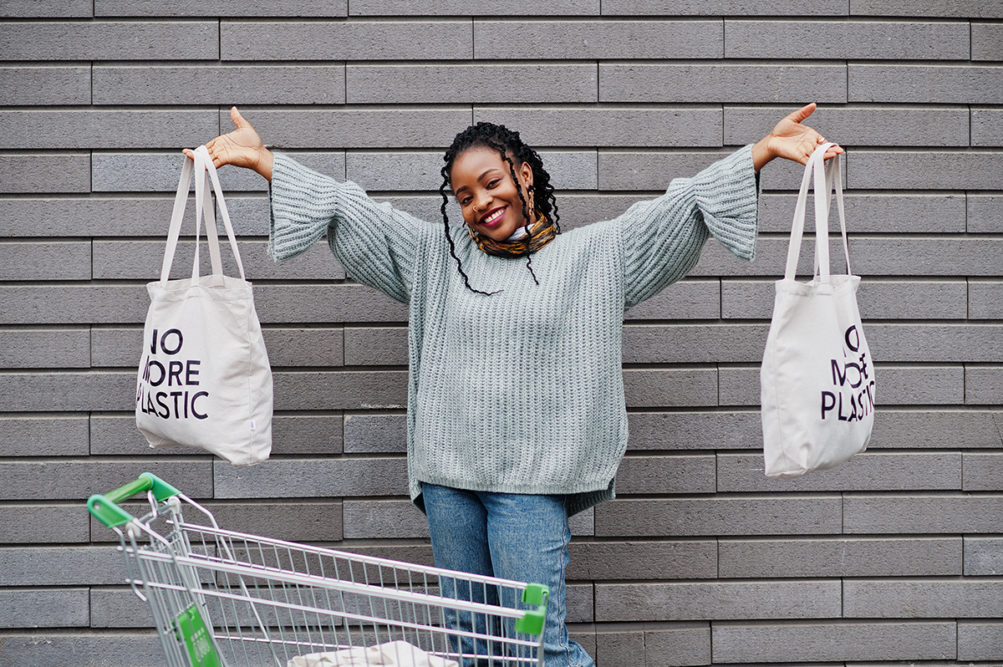For many, 2022 was likely a different year than expected. While some looked for a return to normal, it quickly became evident things were far from the norm. Still reeling from the collective whammies of the pandemic, labor shortages and supply chain disruptions, the industry and consumers added inflationary pressures to the mix. Forty-year highs on prices directly impacted the industry and consumers across the spectrum.
What could have easily been a moment of despair became another shift into problem-solving mode, offering yet another example of the industry’s resiliency. As a result, many have adopted a pragmatic approach – considering both what has been and what could be – leaving massive potential for where the industry and its players could be over the next 12 months.
Sustainability has been on the consumer radar for some time, but defining sustainability is far from straightforward. The push for more sustainable options is multi-faceted, led by demanding consumers, local regulations, marketing strategies and ESG agendas.
Narrowing the scope of sustainability requires a collective approach that may feel downright overwhelming when considering many manufacturers continue to deal with transportation and labor issues, higher ingredient prices, supply chain disruptions and a necessary streamlining of SKUs amid an ever-evolving range of consumer-related inputs. An American Bakers Association (ABA) July 2022 report, Life Through the Lens of Bakery, found that sustainability matters to 2 in 3 Americans, but it only influences the purchases of 1 in 5.
A post-IBIE report written by JP Frossard, vice president, consumer foods, Rabobank, Chicago and Atlanta, cited sustainability packaging in US bakery as being far from mainstream. This is in part because US environmental regulations are less strict than in Europe. Frossard shared that many in the industry are not yet ready to tackle the sustainability topic because of inflationary pressures, ongoing supply chain issues and the expense of switching out machinery. That doesn’t mean that some industry players and a number of innovative startups aren’t already using sustainability as a differentiator. In fact, there’s a push happening that could set new industry standards as soon as 2025, as led by the industry’s No. 1 and No. 2 players.
In 2019, Bimbo Bakeries, Mexico City, committed to using 100% sustainable packaging. This could be in the form of recyclable, reusable or compostable for its entire product portfolio by 2025. The No. 2 player, Flowers Foods, Thomasville, Ga., has also pledged to convert all packaging to recyclable, reusable or compostable by 2025 while introducing 20% recycled material into its packaging. At IBIE, Kwik Lok and KLR showcased fiber and compostable plastic-based bread clips and fiber-based ovenable baking trays.
Similarly, Austin, Texas-based Whole Foods predicted a growing relevance for climate consciousness as highlighted in its 2023 Top 10 Trends list. Mintel, Chicago, found 85% of US food and drink shoppers think environmentally responsible packaging is important and 22% said they would pay more for it. Within the instore bakery, on-the-go, individual packaging styles remain popular.
“More than ever before, consumers are conscious about their health and wellness,” said Jessica Lanter, senior director of business development at TC Transcontinental Packaging, Chicago. “Another priority to keep in mind is the pressure supermarkets are experiencing because of tight labor markets. By moving from a rigid container to a flexible container, they can extend the shelf life by maintaining moisture and freshness longer while decreasing labor costs and shrinkage in the bakeries.”
The company’s Fresh N Tasty Bakery pouch enforces trust and transparency between the supermarket and the consumer by protecting the freshness and quality of instore baked goods while also providing direct visibility to the product inside.





